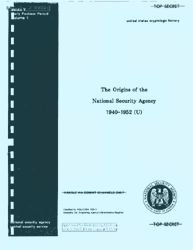The problem of creation is a good example of the attempted synthesis between philosophy and Jewish tenets rooted in Scripture. Working within a framework which upheld the infinity of time, Aristotle posited an eternal universe which had no temporal beginning. Jewish thinkers as far back as Philo had already grappled with reconciling this framework with the Biblical account of creation. Saadia, for example, argued that both the Platonic and Aristotelian theories of eternity and uncreatedness of the universe are incompatible with the Jewish view of creation ex nihilo (from nothing). After examining and rejecting the current philosophical views of creation, he stressed the philosophical significance of the Biblical viewpoint. Subsequent thinkers were equally committed to a cosmology in which the deity willed the universe to exist.
Maimonides’ discussion of creation is fraught with interpretative difficulties. Warning (in the introduction to the Guide) of the dangers of expounding upon creation, he asserts that this topic must not be taught even to one individual. In light of this warning, Maimonides’ analysis of the doctrine of creation has been interpreted as a highly nuanced presentation. In Guide II.13 Maimonides summarizes what he considers to be the three standard views on creation as the Scriptural, Platonic, and Aristotelian views. The main elements of each theory, as depicted by Maimonides, can be summarized briefly as follows. The view of Scripture (1) is that the universe was brought into existence by God after ‘‘having been purely and absolutely non-existent;’’ through His will and His volition, God brought into ‘‘existence out of nothing all the beings as they are, time itself being one of the created things.’’ (Maimonides 1963, II.13:281) The Platonic view (2) states that inasmuch as even God cannot create matter and form out of absolute non-existence, there ‘‘exists a certain matter that is eternal as the deity is eternal... He is the cause of its existence... and that He creates in it whatever He wishes’’ (Maimonides 1963, II.13:283). According to Maimonides, the view of Aristotle (3) agrees with (2) in that matter cannot be created from absolute non-existence, but concludes that the heaven is not subject to generation/ corruption; that ‘‘time and motion are perpetual and everlasting and not subject to generation and passing-away’’ (Maimonides 1963, II.13: 284).
Which of these three views is espoused by Maimonides himself? Ostensibly, at least, Maimonides supports (1). Having dismissed (2) as a weaker version of (3), he argues that (1) is no more flawed than is (3). Then, pointing to the possibility of (1), coupled with its Mosaic (and Abrahamic) sanction, Maimonides argues that the very plausibility of (1) suggests the non-necessity of (3). Why does Maimonides not accept (2)? The main reason, as he tells us, is that the Platonic view has not been demonstrated (Guide II.25:329). If we take Maimonides at his word, then, it is clear that (1), creation in time of the universe out of absolute non-existence, is his view. Some scholars, however, reading an esoteric subtext into the Guide, have dismissed his espousal of (1) as an exoteric stance and have searched for the underlying, or concealed, interpretation which is Maimonides’ real view of creation. And as commentators working through the text have demonstrated, there is certainly ample evidence to support either (2) or (3) as his esoteric view. In fact, there is so much conflicting evidence, all of which can be supported with plausible argument, that some recent scholars have suggested that ultimately Maimonides upheld a skeptical stance in light of the evidence and did not take to heart any of the three positions. Although such a skeptical view would not be quite as heretical as espousing either (2) or (3), it still constitutes a provisional rejection of (1), which is tantamount to a rejection of the Mosaic theory.
Gersonides’ discussion of time and creation is contained primarily in Wars VI.1. Like Maimonides, he is concerned with whether time is finite or infinite, as well as with whether the creation of the world can be said to have occurred at an instant. In order to uphold the fini-tude of time, Gersonides refutes the Aristotelian arguments by attempting to demonstrate that time must have been generated. He will argue that just as quantity is finite, so too is time, since time is contained in the category of quantity (Gersonides 1999:270). Having posited that the world was created at an initial instant of time by a freely willing agent, Gersonides must decide whether the world was engendered out of absolute nothing or out of a preexistent matter. Arguing that creation out of nothing is incompatible with the facts of physical reality, he adopts a Platonic model of matter drawn ultimately from the Timaeus. The opening verses of Genesis 1 are used to distinguish two types of material reality: geshem and homer rishon (Gersonides 1999:330-331). Totally devoid of form, geshem is the primordial matter out of which the universe was created. Since it is not informed, it is not capable of motion or rest; and since it is characterized by negation, geshem is inert and chaotic (Gersonides 1999:330-331). This primordial matter is identified with the ‘‘primeval waters’’ described in Genesis 1:2. However, Gersonides points out that geshem does not itself exemplify absolute non-being, but rather is an intermediary between being and non-being (Gersonides 1999:334-344).




 World History
World History









